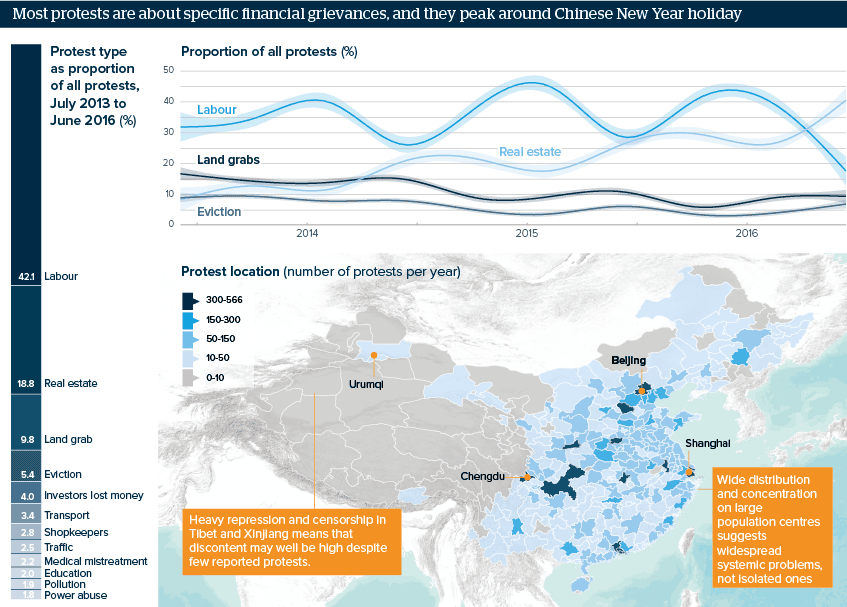Protests reveal strong economic grievances in China
Protests are common in China, but most of them have economic rather than political objectives
Source: Wickedonna protest dataset, University of Vienna
Outlook
Protests tend to follow an annual cycle that peaks around the Chinese New Year holiday, so a temporary surge in protests is not necessarily a secular rise.
The rapid increase in protests by homeowners could be a threat to the regime because it indicates discontent among the middle class, a group that has generally benefited from the current political system and supports it.
Grievances that bridge social class are the most dangerous. Pollution is probably the issue that does this the most, but protests about this are few in number.
Impacts
- Most protesters demand that the authorities intervene on their behalf; this will not translate easily into political dissent.
- The small size of most protests means they are unlikely to put political stability at risk.
- The major grievances that cause protests are financial and the government can in principle address them without systemic political change.
- The authorities will in general avoid using violence to suppress protests.
